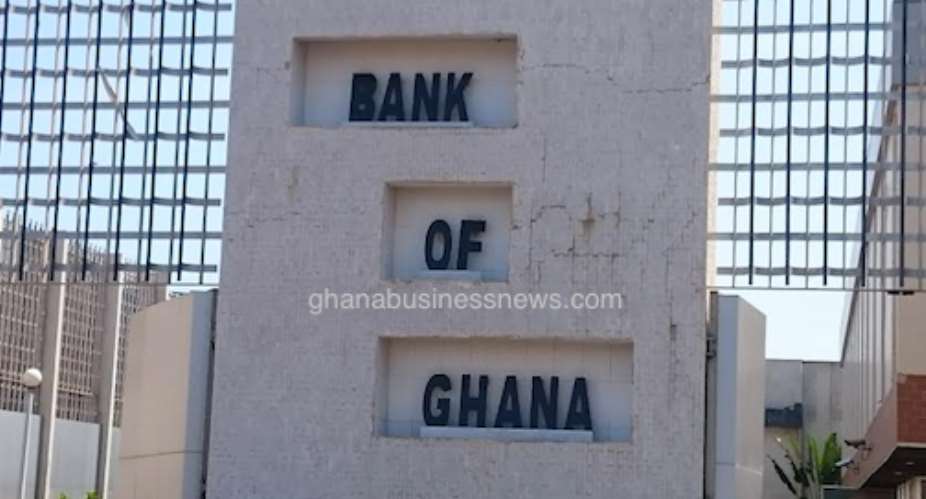The call for a development of savings culture among Ghanaians by the Bank of Ghana, and some international organizations has failed as most commercial banks are not willing to adjust rates on savings. All other things being equal, income levels and distribution, consumption motivations, habit, wealth and most importantly return on savings, influences the demand for a savings account.
The recent hikes in inflation, depreciation of the cedi, rising unemployment and low real incomes, with a high dependency ratio has reduced the luxury of households to save. Besides, the decline in savings culture among Ghanaians could partially be linked to the low savings rate offered by most banks.
This makes a commitment to the golden rule of personal finance “pay yourself first” less rewarding and very difficult for most Ghanaians. A study by GN Research on interest payout by commercial banks in Ghana on savings account indicates that, the real return on savings in Ghana is depreciating gradually as the central bank struggles to control inflation. Arguably, the highest rate recorded on a normal savings account is GN Bank 9% as compared to an average inflation rate of 18.2% since 2016 year-open.
Interest rate on savings for many commercial banks vary with the deposit amount and type of savings account opened. The rates are either calculated daily and credited monthly or quarterly or calculated monthly and credited monthly. Barclays Bank, Standard Chartered Bank, Access Bank, Unibank and GT Bank among others, have separate savings accounts for different categories of customers.
For instance, Standard Chartered Bank has the Savings Plus, Premium Savings and My Dream Accounts with a maximum interest rate of 5%, 5.5% and 5.5% respectively. Barclays Bank also has the Instant savings, Target Save, Premier High and Bonus Savings accounts with a maximum interest rate of 2%, 10%, 3% and 2%
respectively.
However, one needs to save above GHC100,000 for Barclays Bank and GHC500,000 for Standard Chartered Bank to enjoy the maximum savings rates stated above.
GN Bank, Prudential Bank, Bank of Baroda, GT Bank, Unibank, Fidelity Bank, National Investment Bank and FBN Bank are the only banks that offer savings rate on even a pesewa balance. These rates range from 1.5% for Fidelity Bank to as high as 9% for GN Bank.
The minimum account balance needed to earn an interest on your savings account is GHC10 for Access Bank and Bank of Africa, GHC20 for Royal Bank, GHC30 for Ecobank, GHC50 for Energy Bank, Agriculture Development Bank (ADB), UBA and Barclays Bank, GHC100 for UT Bank and Zenith Bank, GHC200 for CAL Bank, GHC300 for GCB Bank, GHC500 for Capital Bank and UMB, GHC1,000 for HFC Bank and Stanbic Bank and GHC2001 for Standard Chartered Bank. Broadly, this could be the reason for not getting the expected returns on your savings accounts given that many commercial banks are not forthcoming with this information.
These statistics are rather unfortunate given that, banks need more deposits to offer affordable loans to businesses. The current practice of raising cheap deposits to finance the credit business of commercial banks make them look somehow “selfish” in their financial service delivery. At the highest savings rate of 9% on the domestic market and an average lending rates of 33%, many businesses and individuals are skeptical, in leaving their monies in a savings account.
Coupled with a persistent rise in inflation and fast depreciating cedi, the idea of returns on savings is gradually vanishing among the populace with no clear solution in sight. Commercial banks are now compelled to hire additional staff to raise deposits which obviously comes at a cost and infiltrates the cost of lending to businesses.
The impact on the macroeconomy is enormous given that, a high savings culture could provide funds needed to finance a percentage of government fiscal deficits at a much lower rate than the usual treasury bill rates, which has ballooned Ghana’s debt interest payments to about GHC9.6billion.
The surest way out of this quagmire, is for commercial banks to lower their profit making goal , by not only calling on Ghanaians to develop a savings culture, but rather, work together to increase the returns on savings for all.
This is expected to improve growth in financial inclusion, minimize the present cost of raising deposits and reduce the present cost of borrowing which is almost collapsing private sector growth.
Thank You
Signed
Samuel Kofi Ampah
General Manager
GN Research





 Saglemi Housing Project will not be left to rot – Kojo Oppong Nkrumah
Saglemi Housing Project will not be left to rot – Kojo Oppong Nkrumah
 Transport fares hike: GPRTU issue two-day ultimatum
Transport fares hike: GPRTU issue two-day ultimatum
 ARC endorses Alan as presidential candidate – Buaben Asamoa
ARC endorses Alan as presidential candidate – Buaben Asamoa
 Akufo-Addo appoints Kwasi Agyei as new Controller and Accountant-General
Akufo-Addo appoints Kwasi Agyei as new Controller and Accountant-General
 PNC dismiss reports of mass resignations
PNC dismiss reports of mass resignations
 PAC advocates for revenue collectors to be engaged on commission basis, not full...
PAC advocates for revenue collectors to be engaged on commission basis, not full...
 Genser Energy commissions 110km of natural gas pipeline at Anwomaso
Genser Energy commissions 110km of natural gas pipeline at Anwomaso
 Naa Torshie calls for tolerance, peace ahead of 2024 election
Naa Torshie calls for tolerance, peace ahead of 2024 election
 Asantehene commends Matthew Opoku Prempeh for conceiving GENSER Kumasi Pipeline ...
Asantehene commends Matthew Opoku Prempeh for conceiving GENSER Kumasi Pipeline ...
 Let’s do away with ‘slash and burn politics’ in Ghana — Dr Adutwum
Let’s do away with ‘slash and burn politics’ in Ghana — Dr Adutwum
